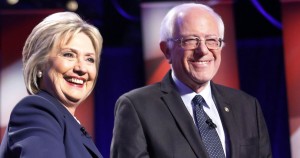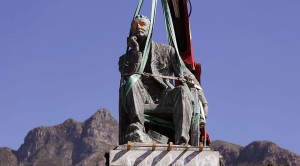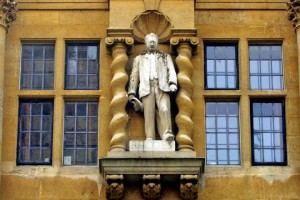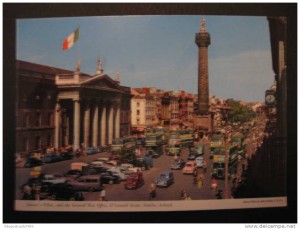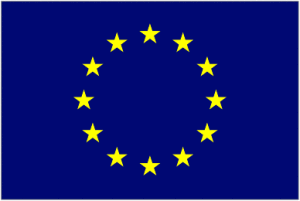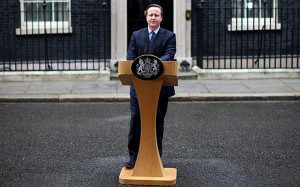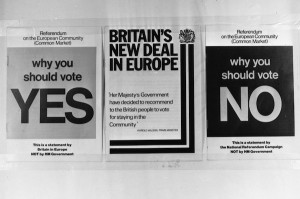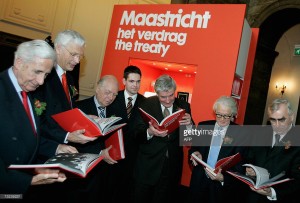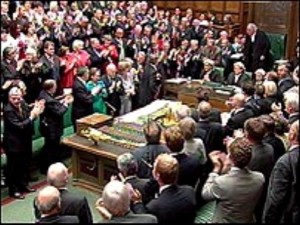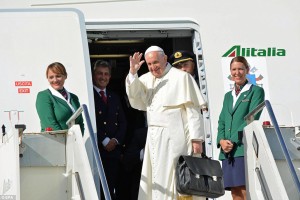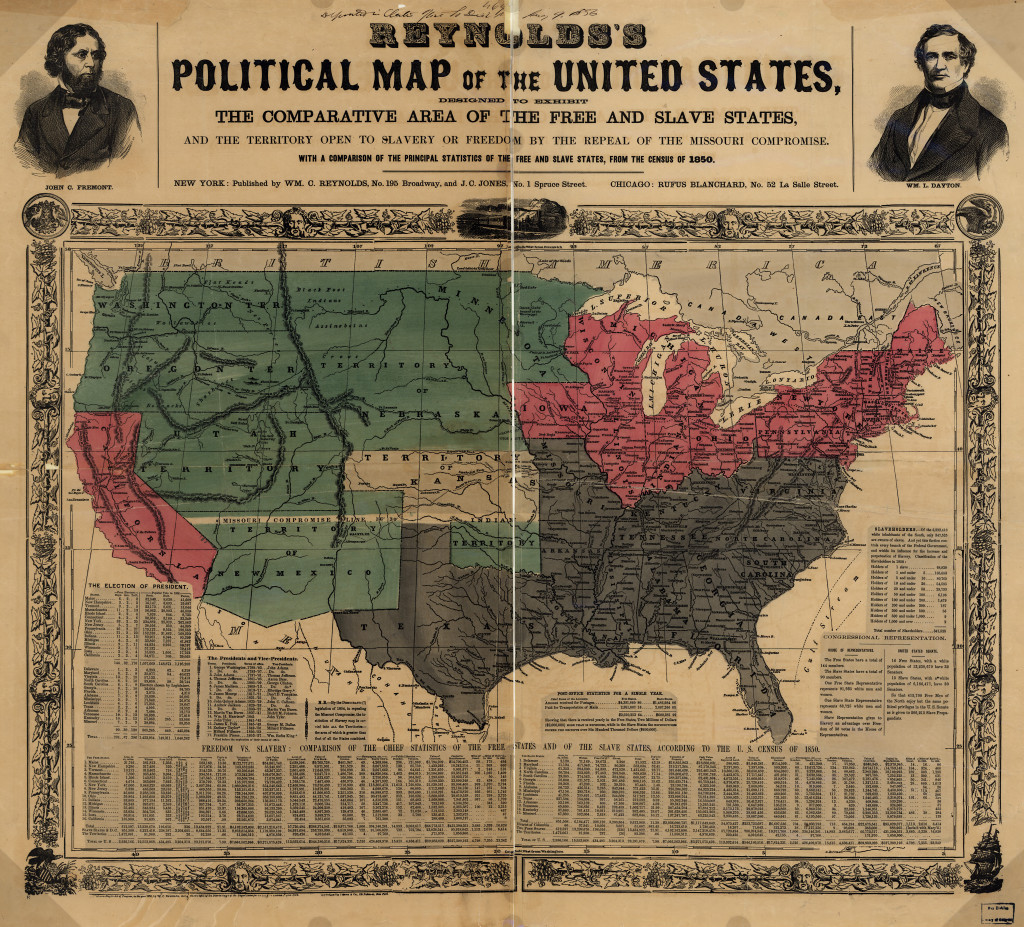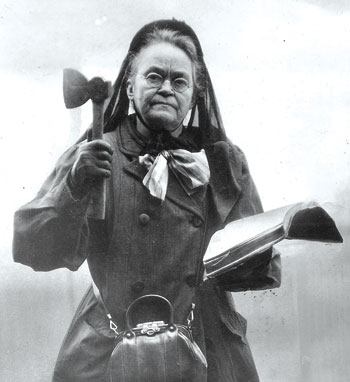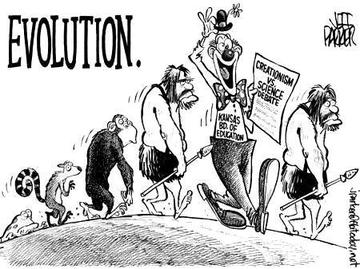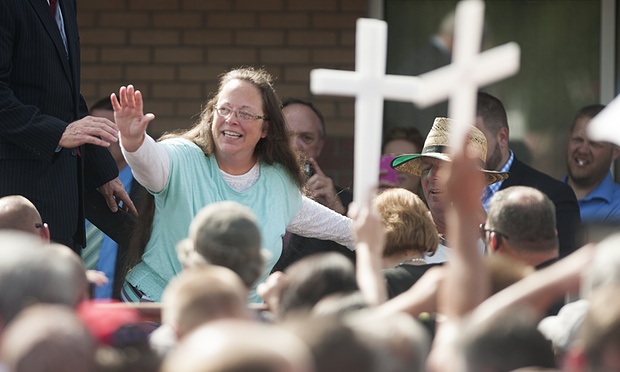Existential crisis…..
It is well to keep calm and carry on if one is HM Queen and has successfully carried on for 90 odd years most of them as the UK’s sovereign. Political Parties do not own the hereditary rights to binding loyalty. Instead they are subject to the vicious realities of politics as played out in a real life Game of Thrones.
The Conservative Party has owned the phoenix-like quality to rise from the ashes of misfortune over its 200 year history – assuming the Party of the Younger Pitt is the direct antecedent of today’s Conservative Party. Treachery is the child of ambition and a party without a formal set of principles beyond the nostrums of Burke and Disraeli and the rhetoric of Thatcher is bound to be a place where the politics of tribe and personality openly thrive. When the dust settles it will be Mrs May in all probability who will be Prime Minister. Only once she is in place will the party come to terms with the meaning of Brexit and only then will some serious attempt be made to find a proper negotiating position. It is difficult to see a place for George Osborne in this new world but he may be offered that chair at the table the Tory Party reserves for its failed leaders – the Foreign Office. He may however not be acceptable to the anti-EU Tory right who have their tails up.
Cameron’s ruse was meant to shoot both their fox and UKIP’s with a single silver bullet. It turned out he was the leader of the pack who was felled by the clever single shot. Cameron was and is an essentially a Baldwin-esque figure – a sort of grandee with the appearance of the common touch. Like Harold Wilson he was clever; but unlike Wilson, Mr Cameron was not sinuous. Indeed the comparison with the 1975 EU Referendum only goes to show how the confidence trick of a referendum needs a very great magician indeed to pull off the masterful deception. Referenda remain essentially in Attlee’s dictum “a device of dictators and demagogues”. They possess the appearance of democracy but indeed offer only its outward show. Never has this be demonstrated to better effect that in the Brexit vote last week – for the binary choice made the two options seem equal and equally valid but they were not. it was a false choice. The Remain option was a certain known but Leave prospectus was a series of unqualified unknowns. It could be and deliberately was very much all things to all men and women.The apparently decisive result therefore leaves so many questions unanswered it will inevitably mean the Conservative Party’s long and recurring struggle with the EU will continue into yet another premiership as Mrs May once more tries to square the political circle. If she edges the UK into a ‘remain’ the in the ‘single market’ solution it will recreate all the same debate; if she chooses the radical option of completely out she will lose half her parliamentary party. Whether as a means of compromise the Party will have the stomach for another Referendum to approve the final terms of a negotiation remains to be seen – assuming the EU permits some sort of negotiation to precede the UK formally applying to leave the Union under Article 50 of the Lisbon Treaty. Here of course politics of nations other than that of the UK will come into play.
Meanwhile, the UK itself is left with at least three parties committed to renewing the UK membership of the EU – The Scottish Nationalists; Sinn Fein and the Lib Dems. The Conservative Party feels bound by the Referendum result but will struggle to give policy expression to its very generalised desire. It will also be gradually consumed by the difficulties which are inevitably part and parcel of remaining legally within the EU but not yet formally outside. Most likely the UK’s growth – already ebbing – will ebb further – and government debt will continue to grow and eventually push will come to shove and Mrs May’s government will find itself hemmed in by the effects of an old fashioned sterling crisis, a government debt problem and a recession.
All this should be music to the ears of the official opposition – but the Labour Party too is lost in a sea of troubles.
What democratic leadership means to the Labour Party
The Labour Leadership election last year took place under a new dispensation. Its rules were formulated under Ed Miliband’s aegis notionally following the reasonable fashion of these times for party members to elect party leaders by ballot. This is how most parties elect their leaders in the UK. The problem for Labour is that it has always been a federal party made up of various elements other than party members – the largest of which has been the Trades Unions. Ed’s changes were opposed by unions which rightly saw the move as an attempt to further dilute their direct influence whilst still leaving them as the party’s notional paymasters. A compromise solution to this was to permit Registered Labour supporters to have an equal vote with party members. This was supposed to attract the participation of a large swathe of union members who had previously participated in Labour Party elections via the ballot conducted by the Unions’ leaderships. The fee for registration to vote as a supporter was fixed at £3. From any perspective it is a highly unsatisfactory mechanism – as unattractive as say the old 40 shilling franchise that obtained in the days before the Great Reform Act. It also has the ultimate disadvantage as a self-selecting mechanism that’s inevitably most attractive to the most politically engaged and the most philosophically committed whilst endowing this activist participation as being representative of the wider Labour electorate. Many of the previous union voters do not fall into this category of politically actively engaged. They did not vote in 2015. Nevertheless the new mechanism doubled the size of the party electorate in three months. It is said in the last week it has yet added another 60k voters to the roll. The one thing however it has failed to do is to reconnect Union members directly with the Labour Party.
The leadership contest under these new rules propelled an outsider from what might be called the remnant of the unreconstructed Bennite Left – Jeremy Corbyn – into the leadership. Corbyn won 60% of the votes cast – around a quarter of a million of them – and he had a definite mandate as as consequence – although it is often overlooked that 40% of the party members did not vote for him.
The Bennite left in the 1980’s had sponsored the particular notion that democratic consent and political legitimacy rested solely on the views of the membership of the party as then expressed in the National Executive Committee which was elected by the entire party and by those who attended monthly meetings of their local party. Benn believed the Parliamentary Labour Party (PLP) owned no right to determine policy; and no privilege to ignore the policy commitments made by the NEC. In this sense Benn saw MP’s as delegates of the party locally and nationally rather than representatives who collectively owned a share of political sovereignty by virtue of election to Parliament and who between elections might exercise it on behalf of the electorate according to their best judgement.
Historically, Labour Leaders had not always followed the urging of the NEC nor indeed the decision of Conference. In fact in order to mitigate the potential power of Conference the unions who came to the Labour Party Conference with bloc votes in their capacious pockets created the so-called composite motion – a mechanism which deliberately united self-contradictory positions into single policy statements which had the effect of cutting the parliamentary leadership a considerable leeway in making policy, particularly when the party was in government.
Consequently there always had been a tension between the Party and the PLP which was not always creative and which Tony Benn sought to end by making the NEC the party’s only policy-making body. It was a Jacobin solution which inevitably drew in the most active members to play their part in sustaining a truly socialist revolution. In the 1980’s the Bennite Jacobins were eventually overcome by Kinnock who placed the parliamentary leadership four square at the centre of policy making for the first time in the party’s history. Those reforms opened the way to other radical reformers of whom Gordon Brown and Tony Blair were both the most prominent and most able. Bennism – sometimes advertently and sometimes inadvertently – had acted as nursing-mother to the entryist project of the Trotskyist inspired Militant Tendency.
Thus it was the Miliband reforms created the possibility of reopening the old divide between the members (activists) and the PLP which a generation of Labour politicians had spent their careers carefully closing. And once more in a moment of well-meaning inadvertence the PLP permitted a man to be nominated for the leadership when his candidature would never have normally have attracted the requisite number of nominations from MPs for the inclusion of his name on the ballot. Jeremy Corbyn’s election last September was therefore a matter of both accident and substance.
The PLP found itself with a leader in whom it had little confidence for good practical reasons as well as ideological ones. Corbyn has never been a loyal party man in the PLP – always believing over his many years as an MP that he had the license of a maverick to support causes the party disavowed or to vote as he pleased. Corbyn of course had long retained his old Bennite views about the PLP and now of course as in the 1980’s there was an activist cadre in the party who now for many differing reasons wholeheartedly embraced one or more of his diffuse policy positions.
Both parties to this uncomfortable marriage tried as best they could to made do and mend.
Meanwhile, the membership – now swollen by the addition of new members – many of whom also own Bennite views about both policy and the nature of party democracy – has found itself in conflict with a PLP which was elected only a few months before Corbyn. The refusal of some of Miliband’s old shadow cabinet to serve Corbyn set off a firestorm in Social Media. Members demonised the refuseniks in the PLP with the label Blairite or traitor or worse, neo-liberal. The formation of the political ginger group called Momentum actively sought to break this opposition by the PLP to Corbyn’s Cultural Revolution with the threat of compulsory reselection of dissident MPs – very much again from the well thumbed pages of the 1980’s handbook. Some on the other side – much again as in the 1980’s – have been as bitter and offensive in reply. Accusations abound of treachery and cabals…much finger pointing and in public – shouting and clenched fists. Anger such as this rarely clarifies an issue
Corbyn has responded to his new position with a very confused message – lurching from compromise to intransigence and back again. He has made changes to defence policy without bothering with the PLP or indeed the sovereign body of Party Conference. He brought in Ken Livingstone as his trouble shooter but Livingstone only managed to shoot himself in the foot with ill-judged comments about the rise of Hitler. Livingstone was duly sacked. Foreign policy is indeed an area where Corbyn’s past has crashed repeatedly and damagingly into his leadership present. It is odd indeed for a Labour leader to find Putin a better ally than Obama. Over Syria he granted his party a free vote on a government motion to limited intervention in the civil war – speaking against the motion himself only to find his own rather rambling oratory completely outclassed by that of Hilary Benn – a man of whom it can be fairly said rhetorical loquacity had never previously been part of his CV. Corbyn then wanted to sack Hilary Benn and then did not sack him. Instead he pushed out Benn’s juniors making them scapegoats for his fury. Much of Corbyn’s 10 months have been characterised by these lurches. It has won him few friends and fewer admirers – outside the very vocal activist cadres for whom he speaks truth to power and from whom he draws both strength but also at times a facile stubbornness.
Political Parties of their nature are moulded more by the desires of their voters than of their members whose views are most often more extreme than that of wider political opinion of voters. This is true of all parties. It is not particularly more or less true of the Labour Party.
Practically, the EU Referendum has intruded itself into this private grief of the Labour Party by heightening the political instability of the party which is still in shock by the scale of its collapse in the last election – particularly in Scotland. Labour officially fought a campaign to Remain. The first problem is both the Leader and Shadow Chancellor came very very late to support a Remain position – they both have a long history of being Euro-sceptics – another policy from the old Bennite bible. Their roles in the campaign were at the very least lacklustre and most particularly lacked conviction. In the noise of the Brexiteers led by Boris, Gove and Farage this mute response just looked inadequate. The PLP not unreasonably was shaken. Hilary Benn offered up his view that Corbyn should take the fall for the failure – Corbyn decided to be bold and do what he lacked the nerve to do earlier in the New Year. He sacked Hilary Benn. The sacking triggered a series of resignations from the Shadow cabinet and front bench. Corbyn’s response was to appoint a sheaf of nobodies – some of whom then promptly resigned when the Leader lost a vote of confidence in the PLP.
Advised by others including John McDonnell and they say Diane Abbott, Corbyn has refused to resign. He dares his opponents to take him into a leadership contest – which he feels – probably rightly – he will win. It has induced a lot of shouting in the Media from all sides.
The problem for the Labour Party is acute. It deserves the term existential for it is now quite clear that – setting the particular personalities of those involved aside – that there is a clear issue of principle drawn from which neither side can resile. The Parliamentary system of government demands a Prime Minister must command the confidence of his colleagues in Parliament. If he or she cannot not – he or she has to make way for someone who does. Other parties represented in Parliament necessarily operate on the same basis – it is a method that in its time did for Macmillan and Thatcher; and for Charles Kennedy and Jeremy Thorpe. It is a method that similarly kept Wilson (1970) , Callaghan (1979 and Kinnock (1988) in place after losing elections. Implicit in the process of election is being nominated by the sufficient number of MP’s who make up the PLP. It is this mechanism that ensures any leader has the continuing confidence of his parliamentary colleagues. If any leader loses that confidence then it has long been accepted that he or she is toast – or at least should be.
Mr Corbyn, his immediate supporters in the PLP and many of those in the membership who support him do not believe in this system. They undoubtedly see it as an elitist notion of political power designed to keep access to power to a select class of the few. That may be true; it may be legitimate; but it inevitably means those holding these beliefs do not believe in Representative Democracy as a binding theory of government. They hold MP’s to be no more the delegates of majority opinion of the party. This does not make them evil; nor make them knaves; but it does mean that whatever system of government they aspire to – it is not the one which currently obtains.
I do not doubt the resort to referendum – particularly this most recent exercise – has obscured the fact we are a Parliamentary democracy with all that means. In a country where there is no written Constitution this fact acts as a restraint upon the abuse of power. In system where there is no other legal obstacle to what otherwise might be little more than a semi-elective dictatorship of sorts that would be not much different in effect to the legitimacy of such as Mr Putin and his ilk.
Whatever the outcome – Labour has to finally resolve this issue for itself and for the country. Like the EU was a matter of remain or leave – in this debate there is no half-way house. In that sense it is indeed an existential crisis for the party and once which will be now only resolved with the greatest pain….
As ever in life it is easy to see how both sides might have better conducted themselves before this point but now by misstep and mischance it appears they have stumbled upon the issue of principal which has to be met and addressed. It is a sobering thought that last orders are being called before the revolutionary party really got going. Everybody has to take some share of the blame and I’m afraid whether he likes it or not that will include Mr Corbyn.




